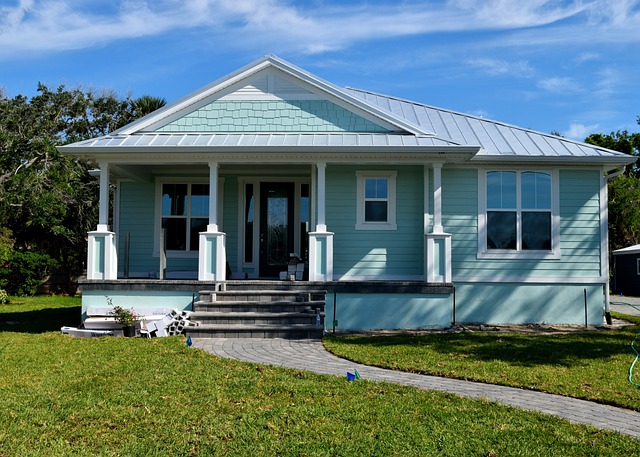2023 saw a pivotal shift in Executive Condominium (EC) pricing trends in Singapore, influenced by sustained demand for mid-market housing due to an increase in the High Net Worth Individuals (HNWIs) population and stable employment rates. Government policies, interest rate changes, and broader economic indicators have been key factors shaping these dynamics. Market experts anticipate that EC prices will remain stable with potential moderate growth, reflecting economic growth and the balance between supply and demand. Future price movements are expected to be guided by upcoming EC launches and the influence of demographic trends and shifting preferences. As such, investors and homebuyers should monitor these trends closely for a positive outlook on the Singapore EC market in the coming years.
Executive Condominium (EC) price trends in Singapore have been a subject of keen interest among property investors and homebuyers alike. This article delves into the dynamic pricing patterns of ECs, offering a comprehensive market overview that traces their evolution. Explore the influential factors shaping these trends within Singapore’s real estate sector and gain insights from expert analysis that shed light on future price movements for Executive Condominiums. Join us as we navigate through the nuances of this unique housing type and its position in the property market.
- Market Overview: The Evolution of Executive Condominium (EC) Prices in Singapore
- Factors Influencing EC Price Trends in Singapore's Real Estate Landscape
- Analysis and Predictions: What the Future Holds for Executive Condominium Prices in Singapore
Market Overview: The Evolution of Executive Condominium (EC) Prices in Singapore

In recent years, the landscape of housing in Singapore has seen a dynamic trend in Executive Condominium (EC) prices, reflecting broader shifts in the property market. These trends are influenced by various factors including government policies, supply and demand dynamics, and economic conditions. The introduction of ECs in 2005 as a hybrid housing option designed for upgraders who cannot afford private properties but earn too much to qualify for public housing has shaped their trajectory. Over time, the prices of ECs have responded to changes in population growth, employment rates, and the overall health of the economy. For instance, during periods of economic expansion, the demand for ECs has often increased, driving up prices. Conversely, during economic downturns or when new EC projects are launched, prices may adjust accordingly. This evolution in pricing underscores the adaptive nature of the EC market, which continues to offer a valuable segment for homebuyers looking for a middle ground between public and private housing. Prospective buyers and investors interested in the EC market must stay informed about these trends to make well-considered decisions, as price fluctuations can significantly impact investment returns and affordability. Keeping abreast of policy changes, such as those affecting eligibility criteria or loan limits for ECs, is also crucial for understanding the full scope of factors influencing EC prices in Singapore.
Factors Influencing EC Price Trends in Singapore's Real Estate Landscape

In recent years, the Executive Condominium (EC) price trends in Singapore’s real estate landscape have been influenced by a myriad of factors. The introduction of the Multi-Ministry Taskforce to cool the property market has had a significant impact, with measures like the Total Debt Servicing Ratio (TDSR) and additional buyer’s stamp duty (ABSD) for second-time buyers affecting demand and pricing. Additionally, the supply of new ECs entering the market plays a pivotal role; the timing of their release and the location can sway buyer interest and influence price points accordingly. Government land sales and the availability of housing loans also contribute to the fluctuating prices of ECs, as do broader economic conditions and population growth trends.
Location remains a critical determinant of EC prices. Proximity to key amenities such as schools, transport nodes, and commercial hubs can significantly boost property values. The maturity of the estate, existing infrastructure, and future development plans within the vicinity are also factors that investors and homeowners consider when assessing the potential appreciation of ECs. Meanwhile, changes in consumer preferences and demographic shifts can alter the desirability of certain ECs, thereby influencing their market price. As such, the interplay between policy, market conditions, and locality underpins the dynamic nature of EC price trends within Singapore’s real estate market.
Analysis and Predictions: What the Future Holds for Executive Condominium Prices in Singapore

2023 has been a pivotal year for Executive Condominium (EC) pricing trends in Singapore, with the property market showing signs of adjustment following the pandemic’s economic impacts. The High Net Worth Individuals (HNWIs) population growth, coupled with a stable employment landscape, has underpinned demand for mid-market housing options like ECs. Analysts have been scrutinizing various factors influencing price trends, including government policies, interest rates, and the overall economic outlook.
Looking ahead, the consensus among market experts is that EC prices are likely to remain stable, with potential for moderate appreciation in line with economic growth. The balance between supply and demand will continue to play a crucial role in shaping price trajectories. New launches are expected to attract interest from both investors and owner-occupiers, keeping the market dynamic and responsive to changing circumstances. Factors such as population growth, demographic shifts, and evolving preferences will further influence pricing. Investors should closely monitor these trends, as they suggest a robust outlook for Executive Condominiums in Singapore over the next few years.
SINGAPORE’s real estate landscape has seen a dynamic shift over recent years, particularly in the realm of Executive Condominiums (ECs). The market overview presents a comprehensive picture of how EC prices have evolved, revealing trends influenced by a multitude of factors. These include government policies, market demand, and economic conditions. As detailed in the article, understanding these elements is crucial for predicting future price movements.
Moving forward, the analysis and predictions section offers insights into the potential trajectory of EC prices in Singapore. It underscores the importance of staying informed on evolving market trends to make well-informed investment decisions. Prospective buyers and investors should take note of these developments as they navigate the real estate market, ensuring they are prepared for the changes ahead.
In conclusion, the trends outlined in this article highlight the significance of monitoring EC price trends in Singapore’s vibrant property market. With careful consideration of the influencing factors and a keen eye on future predictions, stakeholders can better position themselves in this dynamic marketplace.


